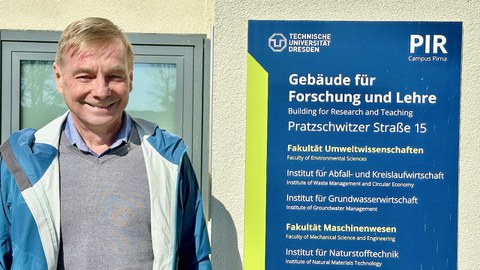19.03.2025
Prof. Mario Schirmer from Eawag Switzerland is visiting the INOWAS Research Group
We feel very honored to welcome Prof. Mario Schirmer from the Swiss Federal Institute of Aquatic Science and Technology (Eawag) in Dresden. Mario (as he asked us to call him) is currently on sabbatical leave and, after spending half of his sabbatical time at Sorbonne University in Paris, he decided to spent the other half with our research group in Dresden. Choosing Dresden was not a pure coincidence: Mario was actually born in Dresden and his first research project was closely linked to the TU Dresden. After his studies at TU Freiberg (not very far from Dresden) and a short stay at the University of Stuttgart, he received his PhD from the University of Waterloo in Canada. He returned to Germany and worked as postdoctoral researcher at Helmholz Centre for Environmental Research (UFZ) in Leipzig, later as Head of the Department of Hydrogeology. His outstanding career continued with habilitation at the University of Tübingen and the position of Professor for Hydrogeology and Modelling at Martin-Luther-University Halle-Wittenberg. In 2008, he relocated to Switzerland, where he works as Associate Professor for Hydrogeology at the University of Neuchâtel and as Head of Research Group Hydrogeology at the Department Water Resources and Drinking Water of Eawag.
Mario’s research interests are as rich as his career, ranging from remediation of large aquifers and contaminated urban groundwater, numerical modelling, sustainable water supply in arid and semi-arid areas and megacities, alpine hydrogeology, and in general everything related to the physical, geochemical and microbiological processes of contaminant fate and transport in the subsurface. Mario is also interested in managed aquifer recharge (MAR) as potential tool to mitigate the impact of regional and global challenges, and this triggered also the motivation for his research visit TU Dresden: during his three and a half months stay in Dresden, Mario intends to write a book about MAR, promoting the technique to a much wider audience, to people that might be interested to apply it but do not have the required level of knowledge in hydrogeology, geochemistry, hydrology etc. We are very glad to support his efforts in writing this book, as well as learning from him as much as possible.

